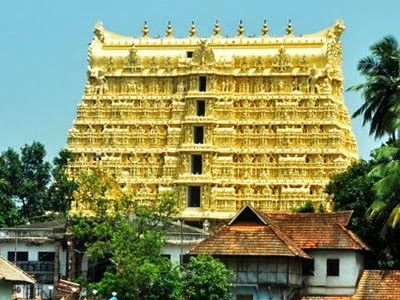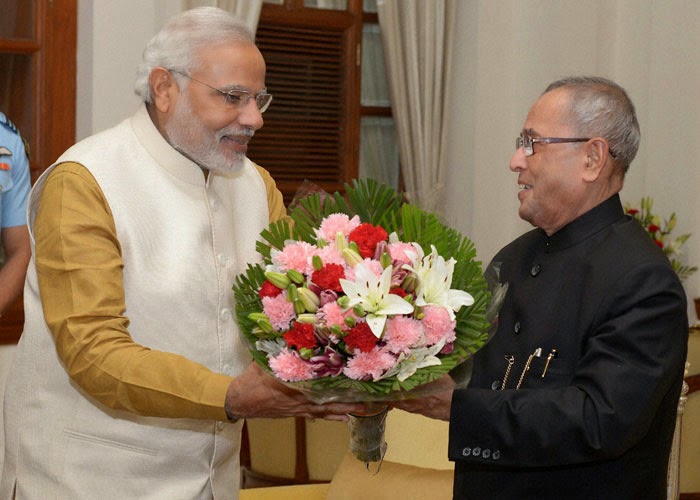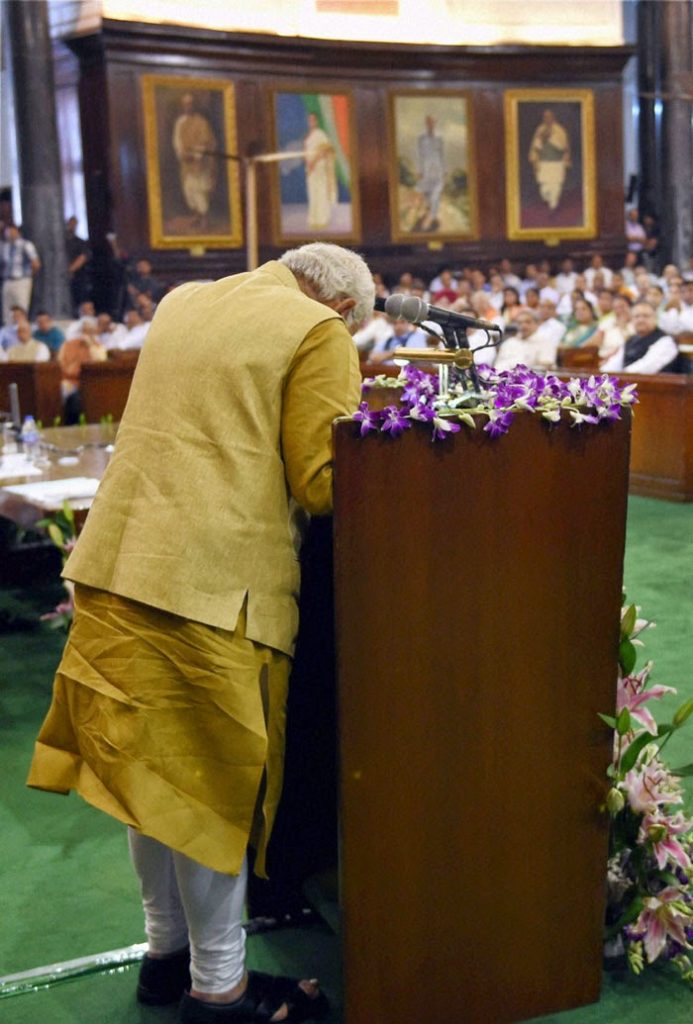History of Russia- as an American sees it.
For all the sneerings there was a time when the Americans were scared shit about communism. Millions of people (including Bangladeshis, majority Hindus) were killed because America either stood by its bastards or actively participated in the tortures and massacres. And yes, the only people to launch a nuclear attack of dubious purpose was the Americans. Perhaps PJ can find time to write a funny article about that. History always sounds better when it is written by the victors.
………
The original Russian state, “Old Russia,” was established at Novgorod in
A.D. 862 by marauding Vikings. They’d set off to discover Iceland, Greenland,
and America, took a wrong turn, and wound up with their dragon boat stuck on a
mud bar in the Dnieper. (Historians have their own theories, involving trade
and colonization, but this sounds more likely.)
The first ruler of Old Russia was the Viking Prince Ryurik. Imagine being so
disorganized that you need marauding Vikings to found your nation—them with
their battle axes, crazed pillaging, riotous Meade Hall feasts, and horns on
their helmets. (Actually, Vikings didn’t wear horns on their helmets—but they
would have if they’d thought of it, just like they would have worn meade
helmets if they’d thought of it.) Some government it must have been.
Viking Prince Ryurik: “Yah, let’s build Novgorod!”
Viking Chieftain Sven: “Yah, so we can burn it down and loot!”
…
The Russians weren’t converted to Christianity until A.D. 988—a thousand
years late to “Peace be unto you” party, the basic principles of which still
haven’t sunk in. (And maybe never had a chance to. Russia’s conversion came at
the hands of St. Vladimir, Grand Prince of Kiev, who was reputed to maintain a
harem of 800 concubines.)
..
The death of St. Vladimir, and every other ruler of Old Russia, was followed
by assassinations, mayhem, civil strife, and the other hallmarks of change in
Russian leadership evident to the present day. Oxford historian Ronald Hingley
notes that “the first and only Russian ruler to fashion an effective law of
succession” was Tsar Paul I (1796-1801). Tsar Paul was assassinated.
Anyway, things went along pretty well for almost 400 years. (Pretty well by
Russian standards—a free peasant was known as a smerd, meaning
“stinker.”) Then, in 1237, when the rest of the West was having a High Middle
Ages and getting fecund for cultural rebirth, a Tatar horde invaded Russia.
..
The Tatars were part of the Mongol Empire founded by Genghis Khan. They had
a two-pronged invasion strategy: Kill everybody and steal everything. Kiev, Moscow, and most of Russia’s towns were obliterated. Tatar
control—part occupation and part suzerainty over impotent, tribute-paying
Russian principalities—lasted more than 200 years.
The Russians have heroic stories about fighting off the Tatars, but in fact
it seems like the Tatars gradually lost interest in the place and went off in a
horde back to where they came from.
Professor Hingley says the “Tatar Yoke” left Russia with “a model of extreme
authoritarian rule combined with control through terror.” It also left Russia
with a model of leadership best summarized by a passage from John Keegan’s A
History of Warfare:
..
“Genghis Khan, questioning his Mongol comrades-in-arms about life’s sweetest
pleasure and being told it lay in falconry, replied, ‘You are mistaken. Man’s
greatest good fortune is to chase and defeat his enemy, seize his total
possessions, leave his married women weeping and wailing, ride his gelding
[and] use the bodies of his women as a nightshirt and support.’”
…
Why Putin wants Angela Merkel for a nightshirt is beyond me. But that’s a
Russian dictator for you.
Around the time Europe was getting a New World, Russia was getting tsars.
Several were named Ivan, one more terrible than the next until we arrive at
Ivan the Terrible in 1533.
…
Ivan created a private force of five or six thousand thugs, the oprichnina,
who wore black, rode black horses, and carried, as emblems of authority, a
dog’s head and a broom. (The hammer and sickle of the day, presumably.)
…
Oprichniks were entitled to rob and kill anyone, and did so with a
will. Ivan suspected Novgorod of disloyalty, and the oprichnina spent
five weeks in the city slaughtering thousands and driving thousands more into
exile.
Ivan presided over and sometimes personally performed the roasting,
dismembering, and boiling alive of enemies and people who, left unboiled, might
possibly become enemies.
He killed his own son and heir by whacking him over the head with the
monarchal staff in a tsar-ish fit of temper.
He conducted a 24-year-long war against Sweden, Poland, Lithuania, and the
Teutonic Knights, and lost.
Russia’s economy was destroyed. Drought, famine, and plague beset the
country.
….
But Ivan put Russia on the map as an international player. He defeated what was
left of the Tatars, mostly by conniving with leaders of what was left of the
Tatars. He expanded Russian rule into Siberia, his success due to almost nobody
being there. And, draw what parallels you will, Ivan the Terrible’s popularity
rating was very high among the smerds.
….
After his reign, Russia, if you can believe it, got worse. “The Time of
Troubles” featured more drought, more famine, more plague, foreign invasions,
massacres, the occupation and sacking of Moscow, and tsars with names like
False Dmitry I and False Dmitry II. The population of Russia may have been
reduced by as much as one-third.
….
The remaining two-thirds reacted to increasing anarchy in traditional
Russian fashion, by increasing autocracy. The Russians aren’t stupid. We’re
talking about a country where chess is a spectator sport. Autocracy is just a
Russian bad habit, like smoking three packs of cigarettes a day and drinking a
liter of vodka.
….
In 1613 the Romanov dynasty was installed, providing Russia with a range of
talents from “Great” (Peter I, Catherine II) to “Late” (Ivan VI, Peter III, and
Paul I killed in palace intrigues; Alexander II blown to bits by a terrorist
bomb, and Nicholas II murdered with his family by the Bolsheviks).
The Romanovs adhered to what Harvard historian Richard Pipes calls a
“patrimonial” doctrine, meaning they owned Russia the way we own our house
(except to hell with the mortgage). They owned everything. And everybody. The
Romanov tsars imposed rigid serfdom just as that woeful institution was fading
almost everywhere else.
….
Russia never had a Renaissance, a Protestant Reformation, an Enlightenment,
or much of an Industrial Revolution until the Soviet Union. Soviet
industrialization produced such benefits to humanity as concrete worker housing
built without level or plumb bob, the AK-47, MiG fighter jets, and
proliferating nukes. (Although the only people the Soviets ever killed with a
nuclear device was themselves at Chernobyl, located, perhaps not
coincidentally, in what’s now Ukraine, for the time being at least.)
…..
Russia was out in the sticks of civilization, in a trailer park without
knowledge of how to build a trailer. But Russia kept getting bigger, mostly by
killing, oppressing, and annoying Russians.
Peter the Great (1682-1725) led a military expedition against the Turkish
fort of Azov that was a disaster. But Peter came right back and, getting more
Russians killed, overwhelmed the Turks. The same thing happened in the Northern
War against Sweden. Although it took 21 years after Peter ran away at the battle
of Narva, Russia finally got a Baltic coastline. Which Peter didn’t know what
to do with, so he built St. Petersburg in a swamp with conscripted serf labor.
The number of Russian serfs who died building things in the swamp equaled the
number Russian soldiers who died in the Northern War.
….
Peter the Great raised taxes, made the Russian nobles shave their beards,
and caused the death of his recalcitrant son and heir, like Ivan the Terrible
did, but on purpose.
….
Catherine the Great (1762-1796) doubled taxes on the Jews and declared they
weren’t Russians, as if anyone would want to be. She was the first but not last
leader of Russia to annex Crimea. NATO member alert, code red—she won two wars
against Turkey and partitioned Poland. (Like Peter the Great on the Baltic, she
got the swampy part.)
….
Under Catherine, Russian settlements pushed all the way east into Alaska,
the most valuable land Russia has occupied. (Annual GDP per capita, Alaska:
$61,156. Annual GDP per capita, Russia: $14,037.) But—E.U. shame alert—when
Russia was facing financial difficulties and geopolitical conflict, Tsar
Alexander II was forced to sell Alaska to the United States in 1867 for 2 cents
an acre. Later, as mentioned, Alexander got blown to bits.
…
And that’s pretty much it for Russia’s Golden Age. After the 18th century,
Russia devoted itself mostly to being big fat loserland, losing pace with the
modern world, wars, Alaska, a communist utopia, a million victims of Stalin’s
purges, 6 million victims of the famine of 1921, 8 million victims of the
famine of 1932-33, a “Kitchen Debate” between Nikita Khrushchev and Richard
Nixon, ICBMs in Cuba, the space race, the arms race, the Cold War, and finally,
14 independent countries that were once in the USSR.
….
Napoleon actually won the war part of his war with Russia. If “General
Winter” and the general tendency of Moscow to be periodically destroyed hadn’t,
for once, sided with the Russian people, you’d be able to get a good bottle of
Côte de Volga and a baguette in Smolensk today.
Russia began a series of wars in the Caucasus that it has yet to win.
…..
In 1825, the Decembrists, a reform-minded group of military officers, staged
a demonstration in favor of constitutional monarchy and were hanged for taking
the trouble.
Political oppression, censorship, spying, and secret police activity reached
such a level of crime and punishment that Dostoyevsky himself was sentenced to
death for belonging to a discussion group. He was standing in front of the
firing squad when his sentence was commuted to exile in Siberia. (Whether to
thank Tsar Nicolas I depends upon how weighty a summer reading list you’ve been
given.)
….
“Exiled to Siberia” says everything about Russian economic and social
development in that land of mountains, lakes, and forests with a climate, in
its lower latitudes, no worse than the rest of Russia’s. I’ve been across it on
the Trans-Siberian Railroad. If this were America, the route from Irkutsk to
Vladivostok would be lined with vacation homes and trendy shops, and “exiled to
Siberia” would be translated as “exiled to Aspen.”
……
Russia lost the 1853-56 Crimean War. NATO member alert, code green—Russia
lost to Britain, France, and Turkey.
….
In 1861 Tsar Alexander II freed 50 million serfs. If “freed” is the word
that’s wanted. The serfs had no place to go except the land they were already
farming, and if they wanted any of that, they had to buy it with the nothing
they made as serfs. Later, as mentioned twice already, Alexander got blown to
bits.
Russia lost the Jews. Being robbed, beaten, and killed in pogroms was not a
sufficient incentive to stay.
More than a million Jews emigrated, taking what
common sense the country had with them.
Russia lost the 1904-05 Russo-Japanese War in the best Russian loser fashion
at the naval battle of Tsushima.
…
Japanese Admiral Togo Heihachiro “crossed the T” of the Russian fleet, a
rare execution of a tactic where you get your ships in a horizontal line so
that your guns can be aimed at the enemy, whose ships are in a vertical line so
that their guns can’t be aimed at you.
The Russian fleet was demolished. Eight battleships and most of the smaller
ships were sunk. More than 5,000 Russian sailors died. Just three of 38 Russian
vessels escaped to Vladivostok.
….
Russia lost World War I, not an easy thing to do when you’re on the winning
side. After the October 1917 Bolshevik Revolution, Russia was too much of a
mess to keep fighting Germany. The Soviet government signed the Treaty of
Brest-Litovsk surrendering Latvia, Lithuania, Estonia, Russian Poland, and
Ukraine—containing in total a quarter of the population of Imperial Russia—to
the Central Powers just eight months before the Central Powers had to surrender
to everybody.
……………….
Link: http://www.thedailybeast.com/articles/2014/05/11/russian-history-is-on-our-side-putin-will-surely-screw-himself.html
…..
regards



